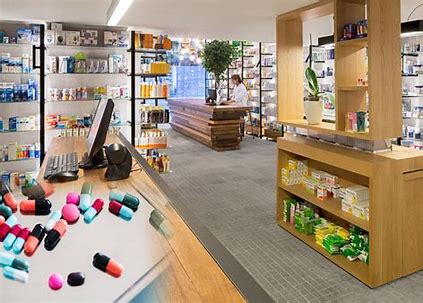Between January 2024 and August 2025, the Pharmacy Council of Nigeria (PCN) closed down 6,705 illegal drug stores and arrested 23 people during its nationwide enforcement activities.
These operations were carried out to protect public health and improve how pharmacy is practiced in Nigeria.
According to a report shared with reporters on Sunday, the council’s enforcement work spanned 20 months and gave a full account of their activities.
The council found many types of offences during its checks.
Some of the problems included selling drugs in open markets, running drug stores without registration or proper licenses, poor record-keeping, selling prescription-only medicines without supervision, and not following PCN rules.
Other issues involved patent medicine shops selling drugs not allowed on the approved list, such as drugs for high blood pressure, diabetes, infections, and ulcers. Some shops were also doing medical procedures they are not allowed to do, or were being run by unqualified or underage people.
Illegal drug shops have been a big problem in Nigeria’s healthcare system for a long time.
Many of these shops are run by people who aren’t trained and may sell fake or low-quality drugs. This can lead to failed treatments, drug resistance, and even preventable deaths.
The PCN said its main goal is to fight against illegal drug shops, stop unprofessional behavior, and make sure the drug supply system is safe and trustworthy.
The council said it works closely with law enforcement and other agencies, and has made good progress in protecting people from fake practices and poor-quality services.
From January to December 2024, the PCN carried out enforcement in eight states: Gombe, Plateau, Jigawa, the Federal Capital Territory (FCT), Bauchi, Cross River, Kaduna, and Adamawa.
During this time, they visited 6,225 drug shops — including 887 pharmacies, 2,692 patent medicine shops, and 2,646 illegal outlets.
Out of these, the council sealed 4,115 places. These included 329 pharmacies, 1,140 patent medicine shops, and all 2,646 illegal shops.
They also gave out 55 warnings for not following the rules and arrested 10 people in 2024.
Between January and August 2025, the PCN increased its activities. They carried out four enforcement operations, one surveillance visit, and one arrest mission in seven states.
The states were FCT (for surveillance), Gombe (for arrest), and joint operations in Akwa Ibom, Taraba, Rivers, Bayelsa, and Niger.
During these months, 3,343 shops were inspected, including 937 pharmacies, 2,405 patent medicine shops, and one warehouse.
After inspections, 2,290 were shut down — including 500 pharmacies, 1,789 patent medicine shops, and the warehouse.
The PCN also gave 48 compliance notices and made 13 arrests in that 8-month period.
In comparison, the PCN inspected 6,225 places in 2024 and closed 4,115 (66%). In 2025 (up to August), it inspected fewer places (3,343) but closed more proportionally (68%), showing stricter enforcement.
Arrests also went up from 10 in 2024 to 13 in just eight months of 2025, a 30% increase in enforcement activity.
PCN Registrar, Ibrahim Ahmed, said the council is fully committed to keeping pharmacy standards high.
He added that they will continue to regulate pharmacy practice, improve training and education, and make sure people get safe and quality medicines through strong monitoring and policy enforcement.


